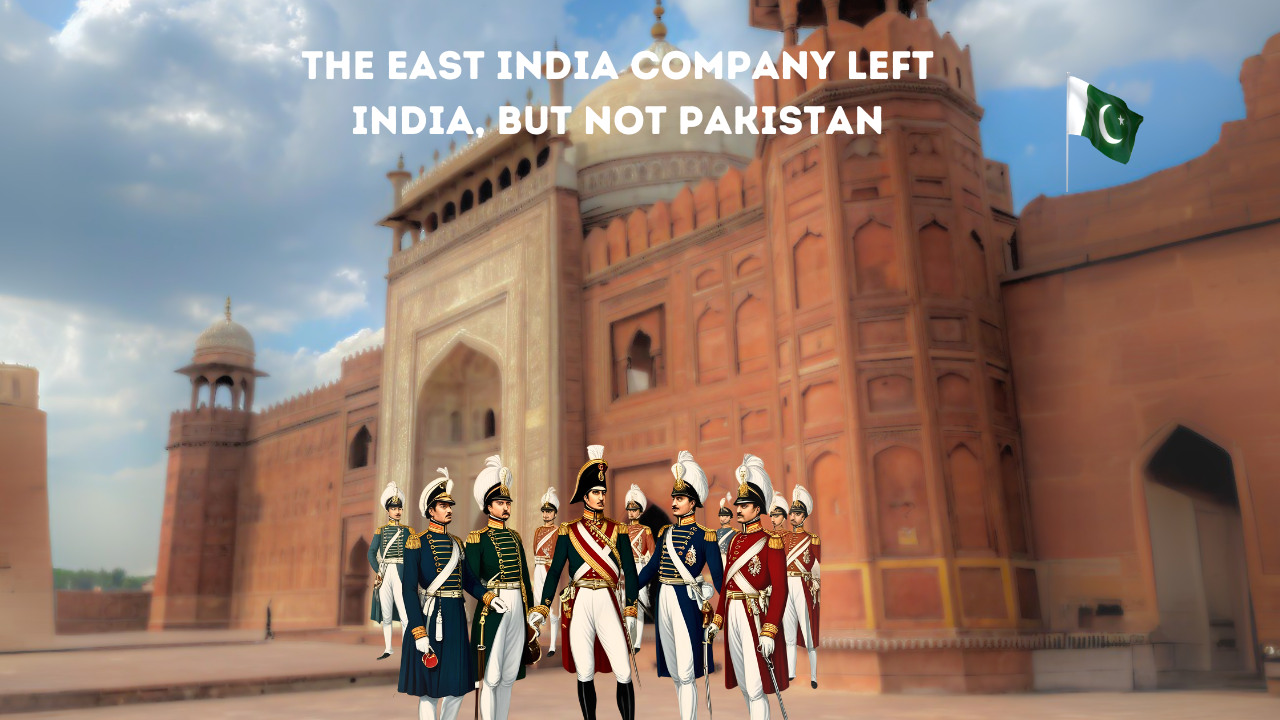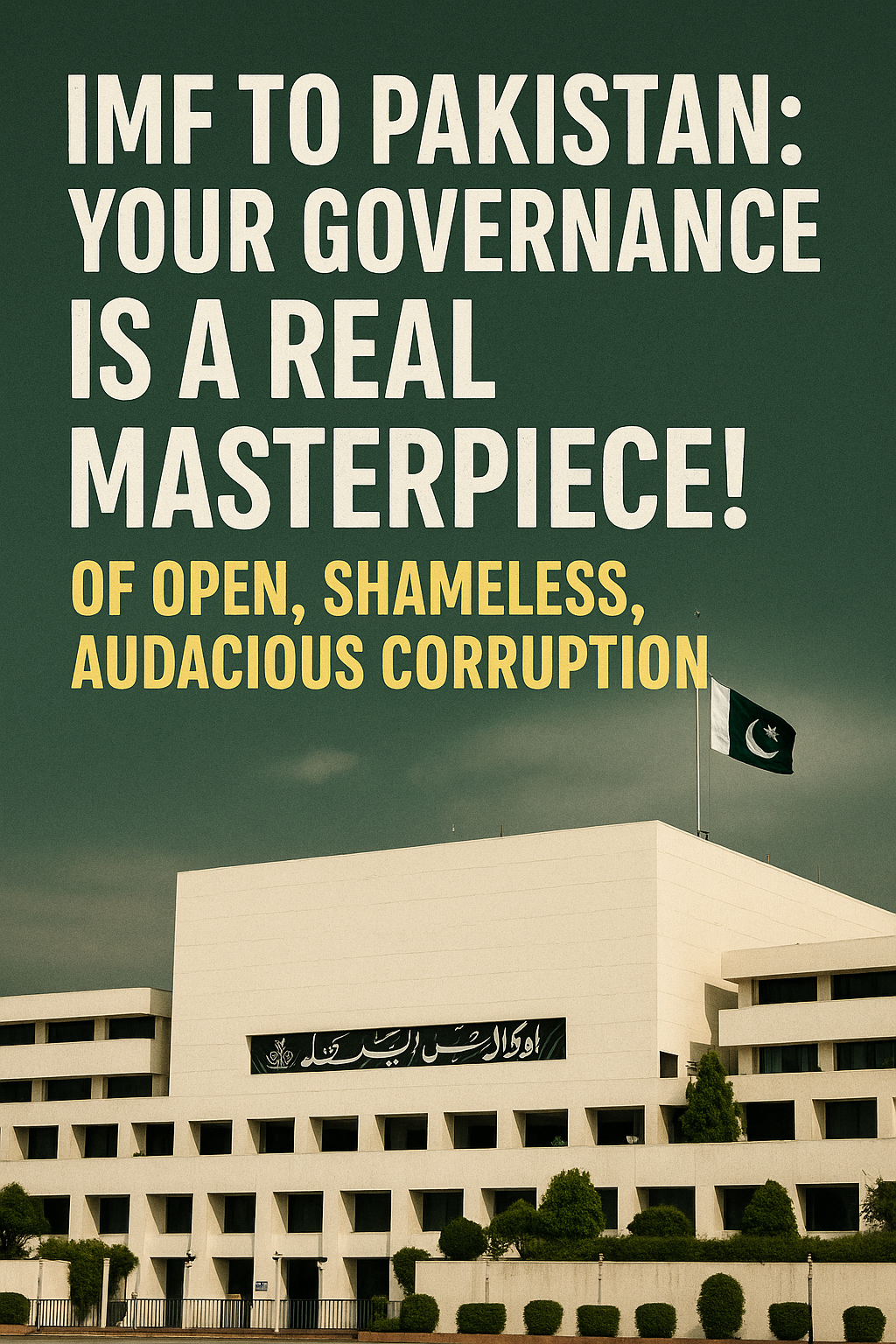When the British left the subcontinent in 1947, their rule was replaced by what many believed would be a democratic, independent state. But while India rid itself of direct colonial rule, Pakistan found itself trapped under the shadow of a different kind of empire—one that did not come from across the seas, but from within. The British East India Company may have been dismantled, but its spirit remained in Pakistan, merely changing form. The new rulers were not foreign merchants and soldiers but the top brass of Pakistan’s military, who slowly but surely turned the country into their personal business empire.
The Military: The New East India Company
The British had ruled the subcontinent through a mix of economic exploitation, divide-and-rule policies, and military suppression. They built railways not to develop India, but to transport goods and troops efficiently. They taxed the locals heavily while repatriating wealth to Britain. The military generals of Pakistan, in many ways, have followed the same blueprint.
Today, Pakistan’s military is not just an institution meant for national defense. It is a multi-billion-dollar business empire with stakes in almost every sector: real estate, banking, manufacturing, construction, agriculture, and even media. It runs housing schemes for the elite while ordinary citizens struggle with homelessness. It controls major industries while the private sector suffocates. It silences dissent just as the British did, branding anyone who questions its control as a “traitor.”
While the East India Company served the British Crown, Pakistan’s military elite serves foreign interests, particularly Western powers that see the country as a pawn in their geopolitical games. Just as the Company prioritized British interests over local welfare, Pakistan’s military prioritizes Western directives over national development.
However, it is important to clarify that when we speak of the military’s role in Pakistan’s exploitation, we are referring specifically to the top brass and their network of cronies. The ordinary soldiers, the lower-ranked officers, and the countless men who serve in uniform are merely pawns in this system. These soldiers are sent to battlefields, often sacrificed in the name of misguided policies. They are martyred in terrorist attacks that stem from the bad decisions of their superiors—superiors who, safe in their luxurious compounds, never bear the cost of their own failures. The suffering of these soldiers is no different from the suffering of the common people; both are victims of the same ruthless elite.
Ironically, while the military elite enjoys unchecked power and influence, it has failed in its primary responsibility—defending the nation. The Pakistani military has lost every war it has fought, whether against India in 1948, 1965, 1971, or in Kargil. Despite maintaining one of the largest armies in the world, it has been unable to secure lasting security or stability for the country. Instead of focusing on strengthening the nation’s defense, the leadership remains preoccupied with controlling businesses, politics, and suppressing dissent.
A False Image of Patriotism
For decades, the military has successfully hidden behind the facade of patriotism. The British once claimed they were bringing “civilization” to India while looting its wealth. Similarly, Pakistan’s generals have long claimed to be the guardians of national security while amassing private fortunes.
They have crafted a carefully controlled narrative where they are portrayed as the ultimate defenders of Pakistan’s sovereignty. Yet, their actions tell a different story.
- When the economy collapses, they continue building luxurious defense housing schemes.
- When civilians demand democracy, they orchestrate coups and manipulate elections.
- When politicians stand up to them, they are either exiled, imprisoned, or even assassinated.
- When citizens raise their voices, they are abducted, tortured, or silenced through media blackouts.
This is not the behavior of an institution that serves the nation. It is the behavior of a corporate empire that serves itself, just like the East India Company did.
Western Orders, Local Execution
The British East India Company ultimately answered to London. Its policies were designed not for Indian prosperity but for British profit. Likewise, Pakistan’s military has always followed foreign directives rather than making independent decisions for national progress.
Consider Pakistan’s role in the so-called “War on Terror.” After 9/11, the U.S. ordered Pakistan to fight its war in Afghanistan. The military complied, dragging the country into a two-decade-long conflict that claimed tens of thousands of Pakistani lives. Billions of dollars in American aid flowed in, but instead of being used for national development, much of it disappeared into military pockets.
Even today, major strategic decisions are not made in Islamabad but in Washington, London, and Riyadh. Whether it is economic policies dictated by the IMF or foreign policy stances aligned with Western interests, Pakistan’s military rulers take orders from abroad and execute them locally—just as the East India Company did for the British government.
Blocking Progress, Ensuring Dependence
The British never wanted the subcontinent to progress. They suppressed local industry, making sure India remained a raw material supplier rather than an industrial competitor. Pakistan’s military elite has done the same—blocking any real development while ensuring that the country remains economically weak and dependent on foreign loans.
- Instead of investing in education, they pour billions into defense spending.
- Instead of promoting industrial growth, they monopolize key industries.
- Instead of strengthening civilian governance, they undermine it to retain control.
A truly independent and prosperous Pakistan would reduce the military’s dominance, so they make sure that never happens. The East India Company was replaced, but the system of elite control remains intact.
The Grand Deception is Over

For decades, Pakistanis were led to believe that their military was different—patriotic, selfless, and committed to national defense. But today, the deception is wearing thin. The corruption, the business empires, the foreign loyalties—everything is now out in the open.
The recent political crises, economic collapses, and growing authoritarianism have made one thing clear: the military does not rule for Pakistan’s benefit but for its own. Like the East India Company, it sees the country not as a nation to be nurtured but as a resource to be exploited.
The British eventually left when they were no longer able to maintain control. The question now is: when will Pakistan’s new East India Company meet the same fate?



Leave a Reply